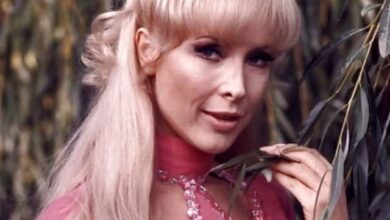Voices of the Bunkers: How Theme Music Shaped All in the Family
The opening and closing themes for All in the Family (1971-1979), particularly “Those Were the Days,” hold a significant place in American television history. Sung by Carroll O’Connor, who portrayed Archie Bunker, and Jean Stapleton, who played Edith Bunker, the song captures Archie’s deep-seated nostalgia for the seemingly simpler times of his youth. The vaudeville-inspired melody, combined with politically charged lyrics, perfectly balances the show’s humor with its social commentary. The tune’s introduction references Glenn Miller, a renowned big band leader from the 1940s, immediately evoking a period associated with stability and traditional values—mirroring Archie’s longing for the past.
The lyrics of “Those Were the Days” delve into themes such as gender roles, economic shifts, and political leadership, subtly highlighting Archie’s desire to revert to a pre-welfare state America. The line, “Mister, we could use a man like Herbert Hoover again,” is a pointed reference to President Hoover, who led the nation during the Great Depression. This mention symbolizes a yearning for a return to perceived self-sufficiency and resilience. The cultural tension between tradition and progress, a central theme of All in the Family, is effectively set by the song, foreshadowing the debates and conflicts that would unfold throughout the series.
The performance of the opening theme by O’Connor and Stapleton is deliberately playful and slightly off-key, enhancing the charm of the working-class Bunker household. Their imperfect singing underscores their humanity, adding authenticity to the sitcom’s portrayal of an American family navigating the rapidly changing social landscape of the 1970s. This musical choice reinforces the show’s grounding in everyday life, making the characters more relatable to the audience.
In contrast, the closing theme, “Remembering You,” composed by Roger Kellaway, provides a more subdued and instrumental counterpart to the lively opening song. While it did not achieve the same level of recognition as “Those Were the Days,” “Remembering You” still plays a crucial role in maintaining the show’s nostalgic atmosphere. The instrumental piece serves as a gentle reflection, offering a moment of calm after the often intense and humorous debates that characterize each episode.
Roger Kellaway, the composer of the closing theme, is a renowned jazz pianist and composer known for his versatile work in both classical and contemporary music. His composition for All in the Family complements the show’s themes by providing a soothing end to each episode, balancing the energetic and often confrontational tone of the opening song. Kellaway’s expertise in creating evocative and memorable melodies ensured that the closing theme effectively mirrored the show’s reflective moments.
Carroll O’Connor, beyond his role as Archie Bunker, was an accomplished actor whose portrayal of the cantankerous yet lovable patriarch became iconic. His ability to infuse Archie’s character with both humor and depth allowed audiences to see beyond the surface-level stubbornness, revealing a man grappling with the complexities of a changing world. Jean Stapleton’s Edith Bunker served as the perfect counterbalance to Archie, embodying kindness and understanding amidst the household’s frequent tensions. Their on-screen chemistry was pivotal in making the theme song’s duet feel genuine and heartfelt.
The integration of the theme songs into the fabric of All in the Family was instrumental in setting the show’s tone from the very beginning. “Those Were the Days” not only introduced viewers to the Bunker family’s dynamics but also encapsulated the broader societal issues the show aimed to address. The music acted as a narrative tool, reinforcing the characters’ motivations and the show’s underlying messages about tradition, change, and the American Dream.
As All in the Family gained popularity, the theme song became emblematic of the era’s generational divides and social upheaval. The show’s success, reflected in its dominance of the Nielsen ratings from 1971 to 1976, was partly due to its ability to resonate with a wide audience. Viewers connected with Archie’s traditionalism while also appreciating the humor in his resistance to adapting to new societal norms. This duality was mirrored in the theme songs, which balanced nostalgia with a reflection on contemporary issues.
The enduring legacy of “Those Were the Days” extends beyond its role in the show. It became a cultural touchstone, often referenced in discussions about television history and the evolution of sitcoms. The song’s catchy melody and memorable lyrics ensured its place in the collective consciousness, making it a staple in discussions about iconic television themes. Its ability to evoke a specific time and sentiment continues to make it relevant in analyses of media from that period.
Even after the conclusion of All in the Family, the theme songs remained a point of reference for how music can enhance television storytelling. The combination of O’Connor and Stapleton’s vocal performance with Kellaway’s instrumental closing theme demonstrated the power of music to reinforce narrative themes and character development. This approach influenced future sitcoms, paving the way for more socially conscious programming that uses music as a storytelling device.
In addition to their musical contributions, the actors behind the theme songs left a lasting impact on television and popular culture. Carroll O’Connor and Jean Stapleton received numerous accolades for their performances, and their characters became archetypes for the portrayal of traditional American families facing modern challenges. The success of the theme songs is intertwined with their legacy, showcasing how integral music can be to the identity and enduring popularity of a television show.
Overall, the opening and closing themes of All in the Family played a crucial role in defining the show’s identity and its place in American television history. “Those Were the Days” not only set the stage for the show’s exploration of social issues but also became a beloved piece of cultural heritage. The combination of thoughtful lyrics, memorable melodies, and authentic performances by O’Connor and Stapleton ensured that the themes remained influential long after the show’s finale. Through its music, All in the Family achieved a timeless quality, continuing to inspire and resonate with audiences decades after its original broadcast.



